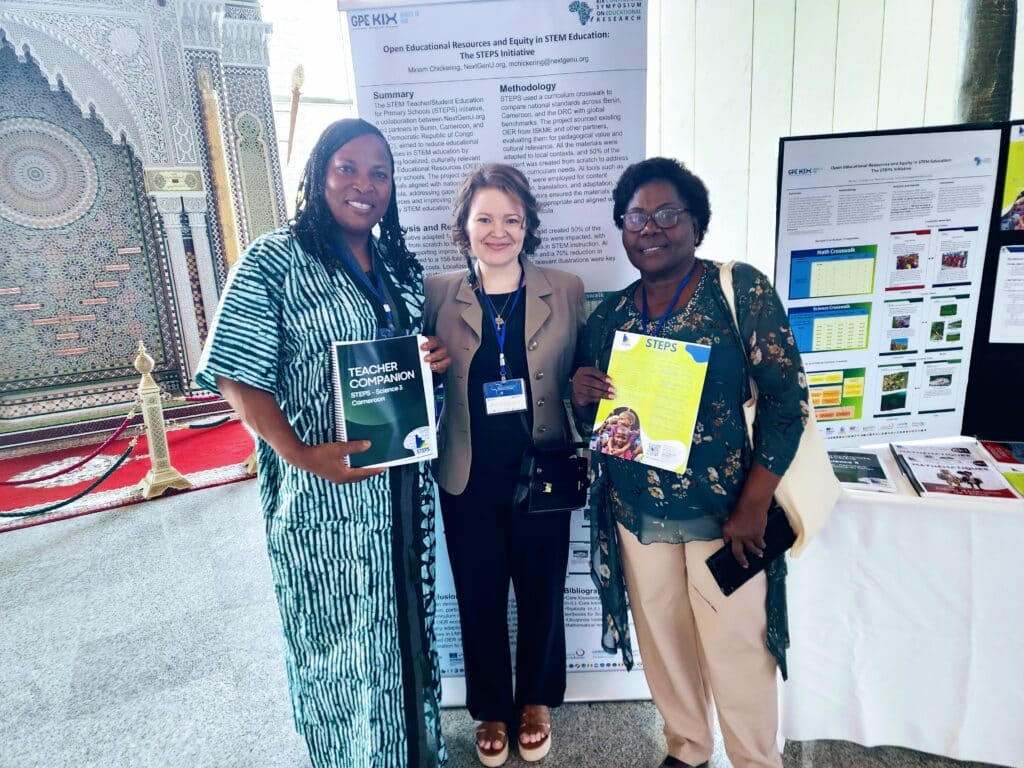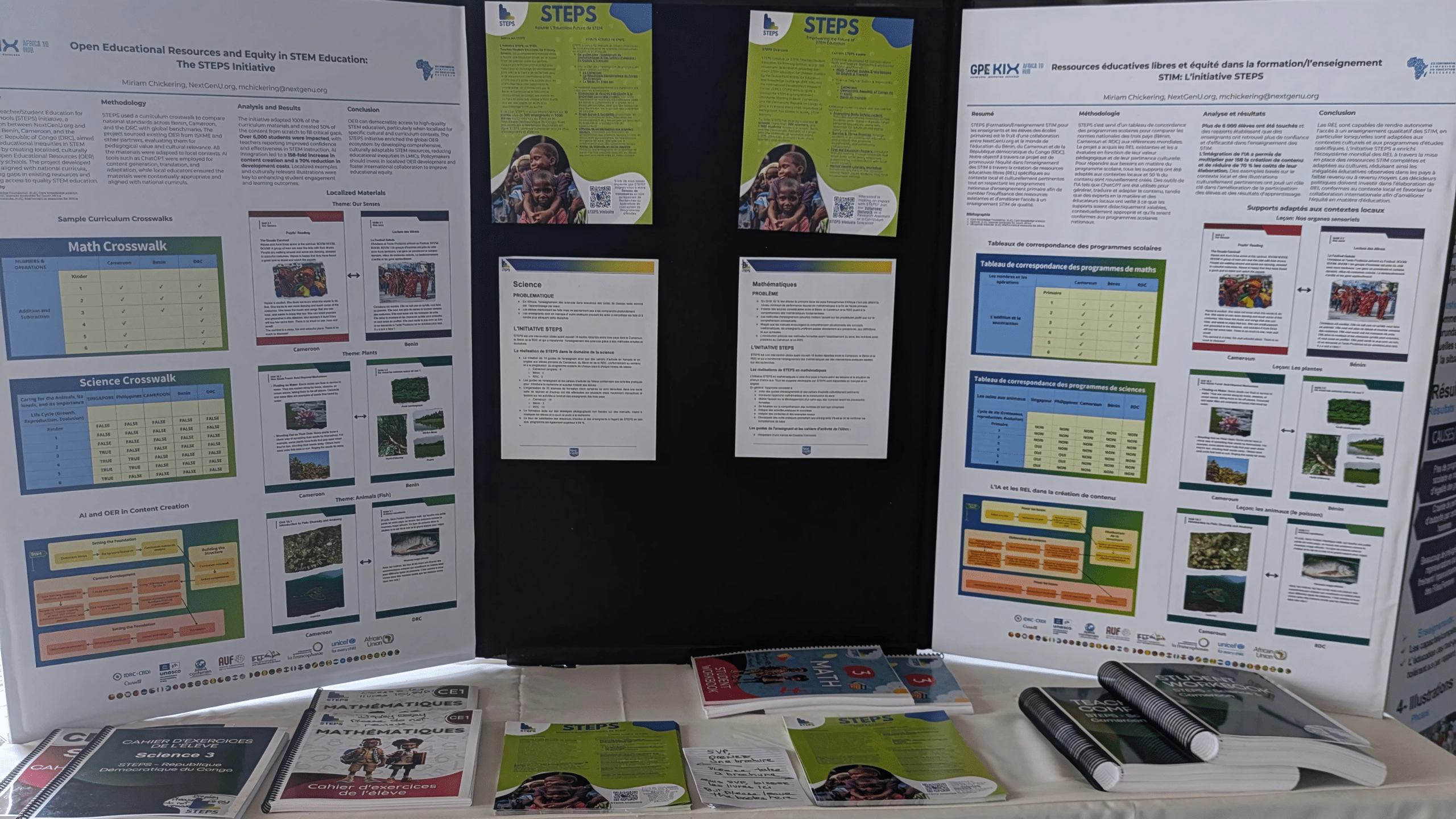The KIX Symposium in Ethiopia, held from November 20–22, 2024, at the African Union in Addis Ababa, brought together representatives from over 40 African governments to discuss “Building Resilient Systems for Increased Access to Inclusive Quality and Relevant Education in Africa.” This event provided a valuable opportunity for the STEPS Initiative to share its work and learn from other education leaders.

Represented by Miriam Chickering, CEO of NextGenU.org, and Dr. Erica Frank, Principal Investigator for the STEPS research project, STEPS contributed to discussions focusing on its successes, challenges, and plans for STEM education reform in Africa. Here’s a look at STEPS’ engagement at the symposium and the insights gained.
The STEPS team participated in various capacities:
- Research Presentations: Two papers and one poster explored methods to improve preschool and primary school math education. These presentations highlighted STEPS’ use of localized resources and inquiry-based learning, which have shown promise in enhancing student engagement and learning outcomes.
- Addressing Deficiencies in Early Mathematics Education: A Case for Curriculum Reform in Sub-Saharan Africa by Napthalin Atanga, Piet Human, and Chris Human, and Miriam Chickering, CEO.
- Developing and trialing an innovative preschool Mathematics program in Cameroon by Emmanuel Mbunwe Wepsigong, Station Pedagogic Advisor at
ISTP Cameroon and in collaboration with Me Honorine Chi, and Piet Human. - AI and OER Poster Presentation By Miriam Chickering and Erica Frank.
- Panel Moderation: Dr. Erica Frank moderated a panel discussion on educational innovation, sparking meaningful dialogue among attendees.
The reception to STEPS’ work at the symposium was encouraging, with many attendees expressing interest in its innovative approaches. However, conversations also highlighted the need for continuous improvement and deeper engagement with local contexts. While STEPS has demonstrated success in some areas, such as using Open Educational Resources (OER) to reduce costs and enhance accessibility, the discussions reaffirmed the importance of ongoing evaluation and adaptation.

Relevance to STEPS’ Mission
The symposium’s theme—resilience and inclusivity in education—aligned closely with the goals of STEPS. Several topics discussed, such as the need for localized resources and strategies to improve teacher professional development, echoed the challenges STEPS has encountered and addressed. However, the event also underscored areas where STEPS could evolve, such as scaling its training models more effectively and ensuring the long-term sustainability of its materials.
The symposium created opportunities for future collaboration and expansion, including:
- Networking: STEPS engaged with policymakers, researchers, and practitioners interested in adopting its methods in other regions.
- Knowledge Sharing: Materials distributed at the event, including briefing sheets and teacher guides, helped inform others about STEPS’ work while inviting constructive feedback.
- Future Directions: The proposal developed with the Union of Comoros illustrates STEPS’ growing potential for contributing to large-scale reforms, though such efforts require careful consideration of local needs and contexts.
Looking Ahead
While STEPS has made meaningful strides in addressing STEM education challenges, the symposium was a reminder of the complexities involved in educational reform. Scaling successful interventions requires innovative solutions and a nuanced understanding of the diverse contexts in which they are applied. The STEPS Initiative continues to navigate these challenges, drawing on feedback from events like the KIX Symposium to refine its approaches and build more inclusive and impactful systems for education.

